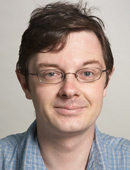
Christoph Schaniel, PhD
About Me
Christoph Schaniel is a stem cell biologist focused on understanding the mechanisms of normal and disease pathology (foremost hematological malignancies and drug action/responses in individuals using human primary stem cells and induced pluripotent stem cells with the goal of facilitating the development of precise and personalized therapeutic treatments.
For more detailed information, please visit the Schaniel Lab website.
Language
English
Position
ASSISTANT PROFESSOR | Medicine, Hematology and Medical Oncology, ASSISTANT PROFESSOR | Stem Cell Biology And Regenerative Medicine
Research Topics
Cancer, Cell Biology, Cellular Differentiation, Developmental Biology, Hematopoiesis, Molecular Biology, Reprogramming, Stem Cells, Translational Research
Multi-Disciplinary Training Areas
Development Regeneration and Stem Cells [DRS], Disease Mechanisms and Therapeutics (DMT)
Download the CVEducation
MS, University of Basel
PhD, Basel Institute for Immunology/University of Basel
Postdoctoral Fellow, Princeton University
Research
Mechanisms regulating stem cell function in health and disease
Our research interest lies in understanding the mechanisms regulating stem cell function in health and disease with the goal of facilitating the development of novel therapeutic strategies. A major focus of our research is to understand HSC development, fate decisions, expansion, and their use in cell and gene therapy.
Hematopoietic stem cell transplantation (HSCT) is a highly utilized therapy for the treatment of a wide range of heritable and acquired disorders of the blood and immune system. The majority of HSCTs use donor allogeneic cells with matching haplotypes to avoid graft versus host disease as well as graft rejection. However, there is a scarcity of donor product for a variety of ethnic groups with rare haplotypes. Thus, the therapeutic potential of HSCs could be significantly broadened by methods that would either enable the ex vivo expansion of bona fide HSCs or the generation of HSCs de novo by reprogramming adult somatic cells. In collaboration with Dr. Ronald Hoffman we are exploring the mechanisms by which human HSCs can be expanded ex vivo without losing their functional properties and to improve, commercialize and bring to the bedside a cellular expansion protocol that utilizes valproic acid. This approach is currently being evaluated in a clinical phase I trial (NCT03885947). Ongoing pre-clinical research deals with process and product improvement and cryopreservation of the expanded product with optimal retention of transplantation functionality.
Other projects revolve around 1) understanding the mechanisms of reprogramming somatic cells into functional hematopoietic stem and progenitor cells, 2) refining/improving the process, so that the generated cells will be capable of sustaining in vivo hematopoiesis, 3) developing this hematopoietic reprogramming technology into a clinical product for treating blood disorders, and 4) explore ex vivo HSC expansion with and for gene therapy purposes. Another recent project is focused on unraveling the cellular and molecular events underlying human HSC engraftment and reconstitution, which will provide critical direct insights into basic human HSC biology, specifically the dynamic processes and balance of self-renewal, quiescence and cell fate decisions in vivo upon HSC transplantation.
Additional, collaborative projects involve derivation of induced pluripotent stem cells (iPSCs) from clinically healthy individuals and patients with specific syndromes with a focus on familial cancers and cardiovascular disorders, and their use to understand the etiology of disease, to identify novel therapeutic targets, to evaluate existing drugs, the molecular underpinnings of variability in drug responses of individuals, all with the indent to develop precise and personalized treatments for patients.
Publications
Selected Publications
- Reparative immunological consequences of stem cell transplantation as a cellular therapy for refractory Crohn's disease. Daniela Guisado, Sayali Talware, Xiaoli Wang, Andrew Davis, Elbek Fozilov, Aaron Etra, Jean Frederic Colombel, Christoph Schaniel, Christopher Tastad, John E. Levine, James L.M. Ferrara, Chuang Ling-Shiang, Ksenija Sabic, Shishir Singh, Bridget K. Marcellino, Ronald Hoffman, Judy Cho, Louis Cohen. Gut
- HMGA2 overexpression with specific chromosomal abnormalities predominate in CALR and ASXL1 mutated myelofibrosis. Shivani Handa, Christoph Schaniel, Joseph Tripodi, Daiva Ahire, Md Babu Mia, Sophie Klingborg, Douglas Tremblay, Bridget K. Marcellino, Ronald Hoffman, Vesna Najfeld. Leukemia
- Multiscale mapping of transcriptomic signatures for cardiotoxic drugs. Jens Hansen, Yuguang Xiong, Mustafa M. Siddiq, Priyanka Dhanan, Bin Hu, Bhavana Shewale, Arjun S. Yadaw, Gomathi Jayaraman, Rosa E. Tolentino, Yibang Chen, Pedro Martinez, Kristin G. Beaumont, Robert Sebra, Dusica Vidovic, Stephan C. Schürer, Joseph Goldfarb, James M. Gallo, Marc R. Birtwistle, Eric A. Sobie, Evren U. Azeloglu, Seth I. Berger, Angel Chan, Christoph Schaniel, Nicole C. Dubois, Ravi Iyengar. Nature Communications